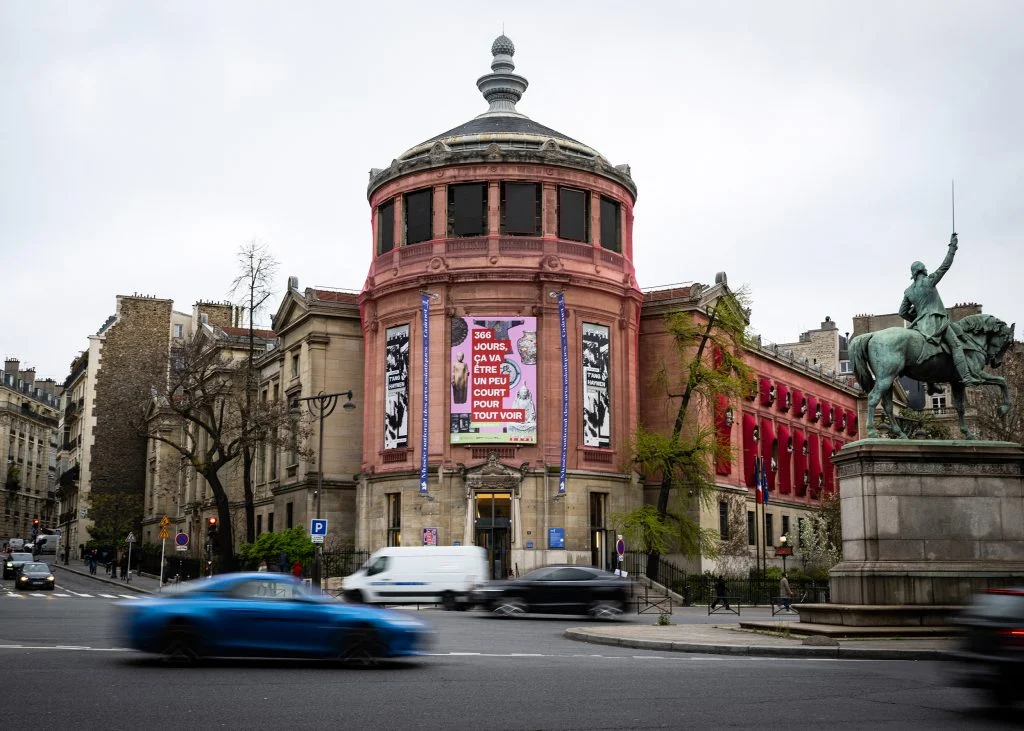A group of predominantly French researchers and scientists have published an open letter in Le Monde expressing concern that France’s cultural institutions were enabling “sinicization,” or the assimilation of non-Chinese groups into Chinese culture. They allege that Musée du quai Branly and the Musée Guimet have acquiesced to use language that “reflects Beijing’s wishes regarding the rewriting of history and the planned erasure of non-Han people.” The critique comes amid a designated year of cultural exchange between France and China.
According to the open letter’s authors, the Musée du Quai Branly, where the collection is principally made up of so-called “ethnographic objects” and indigenous art from outside Europe, has reclassified its Tibetan objects as originating from the “Xizang Autonomous Region.” This change, they say, “clearly shows the desire that Tibet, occupied and colonized since 1950, must be erased from maps and consciences, in the present as in the past.”
Meanwhile, the Guimet Museum, one of the largest collections of Asian art outside of Asia, has apparently replaced the label “Tibet” with “Himalayan world.”
A spokesperson for the Musée du quai Branly said the museum still uses the name Tibet in the plates for the permanent collections and has never stopped using this name in its work on the collections; the thesaurus used to classify the collections conserved by the museum includes both terms (Tibet and China). They added that the collection records currently available online are “not the most up-to-date versions” due to an ongoing technical update, and may be misleading, which the museum claims had previously been explained to one of the signatories on the open letter.
“The Musée du quai Branly – Jacques Chirac carries out its missions with complete independence and scientific freedom,” the spokesperson said in an email. “It is therefore in control of the content of its programs, exhibitions and all its activities. Its professional integrity and institutional autonomy are in no way jeopardized by financial or political interests.”
two people stand side by side holding up open booklets of very official looking paper, some people stand in suits and clap behind them. there is Chinese and Western writing on the wall behind
Yannick Lintz, president of the Guimet Museum, and Palace Museum director Wang Xudong, pose after signing documents while President of Chateau de Versailles Christophe Leribault and France’s Foreign Minister Stephane Sejourne look on during the opening ceremony of “The Forbidden City and the Palace of Versailles” exhibition, which celebrates the 60th anniversary of the establishment of diplomatic relations between France and China, at the Forbidden City in Beijing on April 1, 2024. Photo: Jade Gao / Pool / AFP via Getty Images.
A spokesperson for the Musée Guimet said that recent events “constitute a glaring denial of the unfounded accusations leveled at the museum,” noting that over the past few months, the museum has presented an exhibition about Alexandra David Néel’s travels to Tibet, to mark the centenary of her entry into Lhasa. The show was accompanied by a very successful conference at the museum on her journey in Tibet. The spokesperson also noted that the artifacts in the rooms titled “Himalayan World” belong to a cultural area covering both Tibet and Nepal and “in no way does the use of this term signify the erasure of the terms ‘Tibet’ or ‘Tibetan.’”
Among the signatories on the letter are several respected Tibetologists, including Jean-Luc Achard, Stéphane Arguillère, Katia Buffetrille, and Fernand Meyer. Another of the signatories is Jacques Bacot, a dealer of furniture from the 17th, 18th, and 19th centuries. He shares a name with, and may perhaps be related to, another Jacques Bacot (1877–1965), a legendary French Tibetologist who donated his collection of paintings and bronzes to Musée Guimet in 1912.
The letter’s authors praised the Nantes History Museum for explicitly refusing any Chinese interference in their exhibition about Genghis Khan, which opened in 2023. The museum backed out of a possible loan of objects from China after its “ran into Chinese censorship,” which apparently aimed for “the name of Genghis Khan to be erased, as well as Mongolian history and culture.”
“The People’s Republic of China’s claims to occupy these neighboring territories for the benefit of its own power alone have largely succeeded at the expense of the peoples of these territories,” the letter reads. “This is known to specialists, of course, but probably less so to those who admire the successes of contemporary China obtained at the cost of economic exploitation of these territories and merciless sinicization of these peoples, thanks to the establishment of a dictatorial regime and demographic domination by the Han.”
This year marks the 60th anniversary of the establishment of diplomatic relations between France and China, and President Emmanuel Macron designated 2024 as the official “Franco-Chinese Year of Cultural Tourism.” The Musée Guimet’s year-long “Guimet x China 2024” program concludes this November with “Chang’an: Resplendent Capital of the Tang Empire,” organized in cooperation with Art Exhibitions China.
In China, meanwhile, “The Forbidden City and the Palace of Versailles,” organized in partnership with France’s former royal residence, opened in April at the Palace Museum in Beijing. It highlights a lineage of cultural exchange between France and China during the 17th and 18th centuries. This month, the Musée Rodin will open its first international outpost in Shanghai, the same city where the ongoing Centre Pompidou x West Bund Museum Project was inaugurated in 2019.
/news.artnet.com

